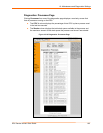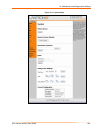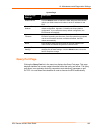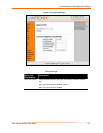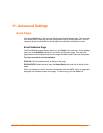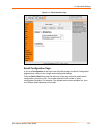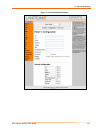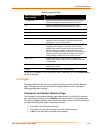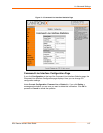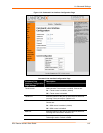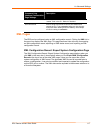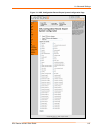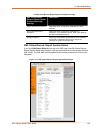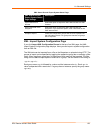
11: Advanced Settings
EDS Device Servers User Guide 114
Email Configuration Page
Email Configuration
Page Settings
Description
To (Required) Enter the email address of the recipient of this message.
Separate multiple email addresses with semi-colons.
Cc Enter the email address to copy this type of email.
Separate multiple email addresses with semi-colons.
From (Required) Enter the email address of the sender of this type of email.
Reply –To Enter the email address to which replies should be sent.
Subject Enter the subject of the email.
File Enter the file on the filesystem that must be sent with all
notification email messages. The file is inserted as the
message text, not as an attachment.
Overriding Domain Enter the sender's domain name that will be forged in the
outgoing email message. This domain name may be
needed if this device is located behind a firewall whose IP
address resolves to a different domain name than this
device. For SPAM protection, many SMTP servers perform
reverse lookups on the sender IP address to ensure the
email message is really from whom it says it is from.
Server Port Enter the SMTP server port number. The default is a
random port number. Usually, the port number is 25, but it
is configurable.
Local Port or Random Enter the local port to use for email alerts. The default is a
random port number.
Priority Select the priority level for the email alert.
To test your configuration, you can send an email immediately by clicking Send Email at
the top of the page.
CLI Pages
Clicking the CLI link in the menu bar displays the Command Line Interface Statistics
page. This page has two links at the top for viewing statistics and for viewing and
changing configuration settings.
Command Line Interface Statistics Page
The Command Line Interface Statistics page displays when you click CLI in the menu
bar. It also displays when you click Statistics at the top of the CLI Configuration page.
This read-only page shows the current connection status of the CLI servers listening on
the Telnet and SSH ports. When a connection is active:
The remote client information displays.
The number of bytes that have been sent and received displays.
A Kill link can be used to terminate the connection.



